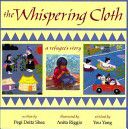
A young Hmong girl in a Thai refugee camp in the mid-1970s finds the story within herself to create her own pa’ndau.

A young Hmong girl in a Thai refugee camp in the mid-1970s finds the story within herself to create her own pa’ndau.
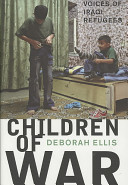
Provides interviews with twenty young Iraqi children who have moved away from their homeland and tells of their fears, challenges, and struggles to rebuild their lives in foreign lands as refugees of war.
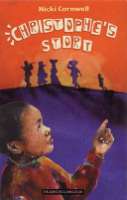
Life has been very lonely for Christopher. The young Rwandan refugee is having trouble getting used to his new school, new language, and new life. Worst of all, he misses his grandfather who had to be left behind. His teacher persuades Christophe to share his story with his classmates — so he tells them of the terrifying day the soldiers came to his house and killed his baby brother. The spoken story fills the air and his classmates are spellbound. But when his teacher asks him to write it down and read it out at an assembly, Christophe is horrified. In his culture, it is believed that once a story is written down, it loses its potency. Will Christophe find a way to break through the barriers and share his story?

“You must not use the mountain road.” “We know no other way,” the girl told him. “Perhaps not, but moon does,” answered Tenzin. He knelt down to stroke the long hair from the little dog’s eyes. “Take them. Show them the way.” A young monk is moved by the bravery of two children journeying alone to the freedom of Nepal. He offers what help he can–a hot bowl of soup, a warm bed for the night–but he realizes their best chance lies with Moon. She is the little dog who knows the unguarded paths out of the mountains, the very dog who will leave an ache in his heart when she goes. This story was inspired by the sacrifice and courage of those who struggle to be free. It is not uncommon in Tibet for parents to send their children into the treks through the mountains in the hope they will find refuge in Nepal. During the winter when the passes are not heavily guarded, the bitter cold is considered a smaller threat than remaining at home. Many such children have made it, many have turned back, many more have simply disappeared.
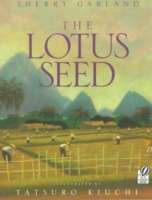
When she is forced to leave Vietnam, a young girl brings a lotus seed with her to America in remembrance of her homeland. “Exquisite artwork fuses with a compelling narrative–a concise endnote places the story effectively within a historical context–to produce a moving and polished offering.”–Publishers Weekly
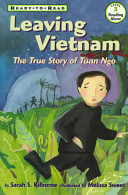
Tells the story of a boy and his father who endure danger and difficulties when they escape by boat from Vietnam, spend days at sea, and then months in refugee camps before making their way to the United States.
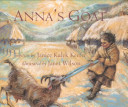
A moving statement about the refugee experience, told from a child’s unique point of view.
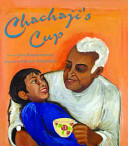
A boy learns about his family history and the Partition of India from his great uncle, through stories told over a beloved old teacup.
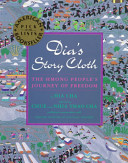
The story cloth made for her by her aunt and uncle chronicles the life of the author and her family in their native Laos and their eventual emigration to the United States.
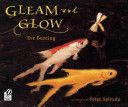
Inspired by real events, master storyteller Eve Bunting recounts the harrowing yet hopeful story of a family, a war–and a dazzling discovery.
This book has been included in WOW’s Kids Taking Action Booklist. For our current list, visit our Boolist page under Resources in the green navigation bar.